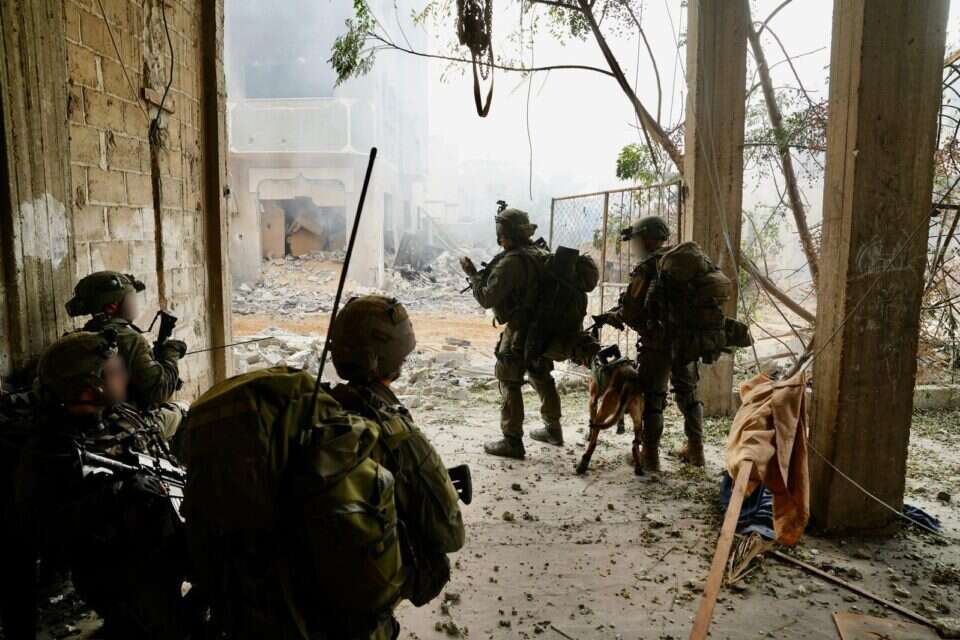We must welcome and encourage the initiative to re-establish in the IDF the Nahal nuclear forces - warrior pioneer youth.
Even after the fighting efforts of the IDF on the northern border and in the Gaza Strip lead to an improvement in security conditions, it will not be easy to return to the lines of conflict a momentum of civilian prosperity and development. Renewing the operation of the education system in the region of the line of conflict is a key condition for the return of the residents, and in the meantime there are hindering factors in the issue that should not be ignored .
In this situation, return should begin gradually, as was customary since the beginning of the settlement enterprise more than a hundred years ago.
This was one of the duties of the Hashomer organization - to put a group of young pioneers on the ground, who gradually prepared the conditions for accepting families to establish a settlement.
In the years before the establishment of the state and immediately after the end of the War of Independence, the Palmach carried out this task. Within five years, the Palmach established or increased 52 settlements.
With the establishment of the state, this role was assigned to the cores of the Nahal. In about a decade, more than 10 settlements were established by the Nahal in the border areas, the best known of which are Nahal Oz, Nir Oz, Yotbata, Ha'on and Tel Katzir.
In addition to the establishment of new settlements, Nahal departments that operated as part of military service in the border settlements integrated into the work of the economy and at the same time provided a significant addition to the defense force in the settlement. As members of youth movements with an ideological affinity to the settlement to which they were sent, the integration of the cores into the social fabric of the settlements gave the residents a boost that could not be given It could be realized with a regular squad of soldiers stationed in the settlement only as a security force.
Kibbutz Bari after October 7, photo: Yossi Zeliger
"
An army is needed and a settlement is needed
"
In various settlements on the northern border such as Hanita, Menara, Metula and Margaliot, or in Nahal Oz and Kerem Shalom in the Western Negev, the Nahal departments can now immediately provide the first stage in creating the conditions for the return of civilian life to the settlement.
About this role of the Nahal, Ben Gurion explained at the time that "we need an army and we need agricultural settlement, for our security we need these and those... we must settle places full of dangers.
Such a settlement is only done out of great love, because life in this settlement is difficult and dangerous.
"With the help of the army, we can settle the most dangerous weak points in the country, but for that we must train the youth and teach them two things: the sword and... because individuals do not go to these places. And I am sorry to say that neither the kibbutzim nor the moshavim are pushed too much into such settlements. Whenever I come to the Galilee, I stand ashamed and devastated... there are houses and they are empty. And no one is going to settle in this wonderful and difficult place. The Nahal will go there, because the Nahal is a youth who stands up to the command of the people... and at the funeral of the Nahal, maybe they will also come others.
It is an essential necessity for security" (the words were said in 1952).
The activities of the forces of the Nahal Brigade in the Gaza Strip, photo: IDF spokesperson
Adaptations are required for today
In a discussion on settlement and security held in memory of Chief of Staff David Elazar in 1980, Colonel (Ret.) Meir Kaif warned that we must "distinguish the changing historical conditions, related to the interrelationship between settlement and security, so that we do not find ourselves clinging to models of a lost past The power is upon them."
This warning deserves attention.
It is certainly not possible to copy and recycle the operating patterns from the past without necessary adjustments for today.
And yet, in view of the upheaval of the war that severely damaged settlement along the conflict lines, not only in the physical dimension, the State of Israel is required to make a renewed and up-to-date pioneering effort to renew the momentum of settlement in the areas of the book.
were we wrong
We will fix it!
If you found an error in the article, we would appreciate it if you shared it with us

